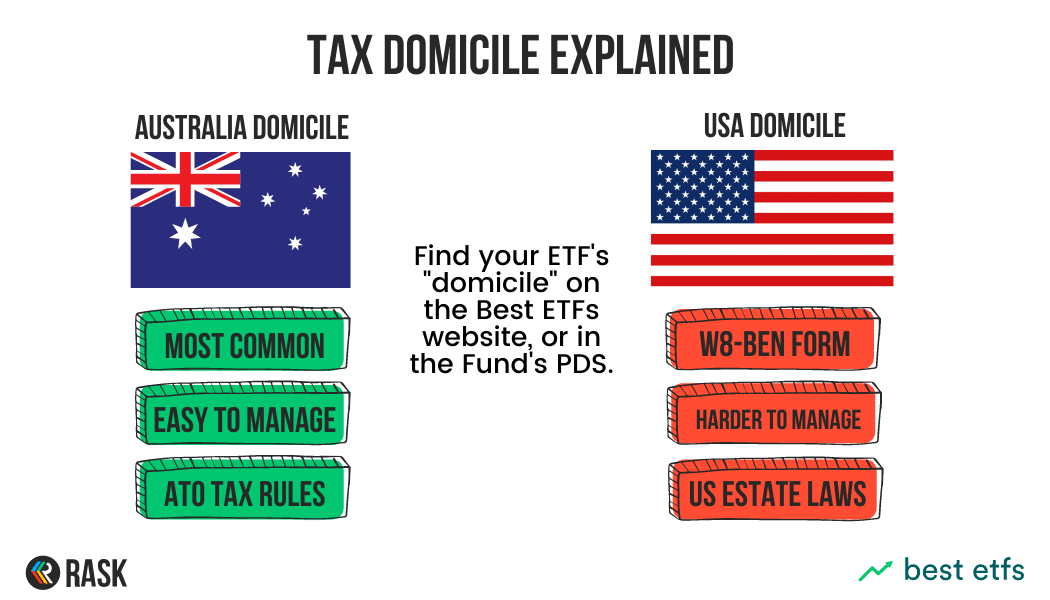Domicile: Australia

What does tax domicile Australia mean?
When a fund/ETF has a "domicile" of Australia it means it is a registered fund in Australia for tax purposes. This means investors who buy into this ETF and are Australian residents for tax purposes, will be subject to Australian taxes and regulation -- and not directly exposed to overseas tax or estate laws.
Imagine two ETFs:
- Both ETFs invest in international shares (e.g. from the US, Asia, Europe, etc.)
- "Fund A" has a domicile in Australia
- "Fund B" has a domicile in the USA
The Australian-registered fund, Fund A, will be taxed just like any other managed fund providing investments in Australia. Fund B could get you caught out in weirdly complex tax rules.

When your fund/ETF says "Domiciled in Australia", what this means for you is simple: it's likely you will NOT have to fill in extra tax forms (such as the USA's W8-BEN form) or expose yourself to extra tax laws (i.e. tax rules from overseas jurisdictions).
If you invest in a fund that is regulated here in Australia (Australia domicile), you should not have to fill in or file additional tax or legal documents with the ETF issuer or your broker, such as the pesky W8-BEN form.

Which domicile is best for me?
For Australian tax residents, if you have the choice of two ETFs that are exactly the same but one is Australia domiciled and the other is US domicile, consider the Australia domiciled ETF. Using Australia domiciled ETFs or funds simply means less paperwork, less direct exposure to foreign tax or estate laws, potentially fewer legal implications, and -- as a result -- fewer headaches.
The tax information on your chosen fund can change, so you should always read the Product Disclosure Statement (PDS) to learn where your chosen ETF is domiciled. Then consult a financial adviser and tax agent if you're confused. They will be able to tell you what this information means if you're still confused after reading the PDS.
